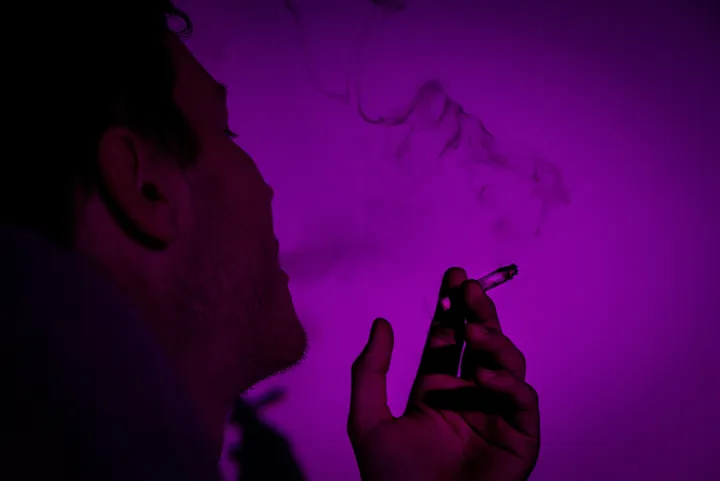
It’s not often I find myself in agreement with Tory backbenchers but as Parliament votes to back the smoking ban, I wonder how we became so nonchalant about the notion of individual liberty.
Whilst the rest of the world moves towards an understanding and acceptance of mind-altering plants and chemicals, the UK seems to be regressing into a state of nannyism, the likes of which the Conservatives claim to oppose.
The decriminalisation of drugs across Europe and in some US states has led to less criminal activity, higher state revenue and a safer, regulated drugs market. Yet in the UK, rather than welcoming this liberalisation, we are criminalising more substances and creating the potential for new felonious revenue streams.
A new war on drugs
This new War on Drugs has been a consistent goal of the Tory party in recent years. In 2021 Boris Johnson declared a ‘new crackdown on drugs’ which co-emerged in a beautiful moment of synchronicity with another story describing the substantial quantities of cocaine found in a substance analysis of parliamentary toilets.
This hypocrisy isn’t new. We know politicians and other cultural figures use drugs. The ludicrous stories they come up with to avoid answering honestly about their own drug use would be comical if they didn’t have such devastating real-life implications for the rest of us.
For example, Bill Clinton’s ‘I didn’t inhale’ answer when being asked about his own Marijuana use may appear like a fairly innocuous fib until we realise that the Clinton and Biden 1994 Crime Bill accelerated the shift towards the system of mass incarceration we see today.
These laws disproportionately affected black communities. Many of those people who faced marijuana prosecutions are still in jail today despite the recent legalisation across many states. Furthermore, we have consistently seen far tougher sentencing on drugs that have been associated with the black community.
Dr Carl Hart points out that under Reagan’s Anti-Drug Abuse Act, crack cocaine penalties were one hundred times harsher than cocaine sentences. Two almost identical substances, one of which was popular in urban inner cities and one which was mostly used by wealthy white professionals. Furthermore, even now, despite 55% of crack users being white, black people make up 83% of crack convictions, showing that sentencing is overwhelmingly racially biased.
The Fentanyl crisis
The Fentanyl crisis must be a wake-up call for all of us to take a more mature attitude towards drugs. Drug overdose rates have doubled since 2015, mainly as a result of the emergence of prescription opioids like Fentanyl finding their way into street drugs. Fentanyl when prescribed and taken as directed works as an effective pain killer. However, when mixed with other drugs without the consumer’s knowledge, its potency creates a situation in which an overdose becomes far more likely.
These are deaths that could easily be avoided. They are deaths of ignorance. If we had a regulated drug market in which people could know with certainty what substances they were consuming, we could stop the hundreds of thousands of overdoses we are now seeing every year.
We need to stop demonising substances. Portugal, which has a policy of decriminalisation for all drugs recorded 63 overdose deaths in 2020. If we had a completely legalised system in which adults could buy drugs and be sure of their purity, we would experience a rapid decrease in accidental overdoses.
The psychedelic renaissance
Beyond avoiding harm, another reason to change our approach to drugs is the incredible results that continue to show the efficacy of psychedelics and other drugs in the treatment of mental and physiological ailments.
Psilocybin, the active component in magic mushrooms, is showing itself to be four times more effective than current treatments for major depression. MDMA has displayed incredible results in treating PTSD, especially in the military community and LSD is showing great promise in the treatment of cluster headaches. Furthermore, trials are currently underway and are showing promise for the use of psychedelics in the treatment of diseases of neurological decline such as Alzheimers and Parkinsons.
Beyond the use of psychedelics to heal, many people have reached profound insights, creative breakthroughs and spiritual transformations through their psychedelic experiences. The shift in perception and breaking down of patterned ways of thinking can allow individuals to overcome blockages in cognition or perception that have inhibited them for decades.
Regulation not criminalisation
Although I fundamentally disagree with the government’s current policy, I do understand the concerns about the tobacco and vape products on the market. Vaping has quickly emerged as an alternative to cigarette smoking and as a result has very little regulation, meaning that this generation of vapers are guinea pigs for the effects of vape products on health. Furthermore, cigarettes are currently full of chemicals and additives which have their own harmful side effects in addition to the damage caused by pure tobacco.
I would absolutely advocate increased regulation of the tobacco and vaping industry to create a cleaner product but philosophically I will always be opposed to prohibition.
Ultimately, I believe we need to stop being led to think in polarised ways. We have been manipulated into a completely non-sensical demonisation of certain drugs whilst accepting the promotion and celebrated use of others. Scientific research in promising compounds has been delayed for over 50 years because of fear-based moral panics, many of which served other political functions unrelated to the drug use itself.
Furthermore, we must prevent completely avoidable drug overdose deaths that have been increasing year on year. Of course, it would be vitally important to create a restricted market to stop substances from falling into the hands of younger people, but currently young people who are buying unregulated street drugs are far more likely to experience severe adverse side effects due to the unknown composition of those substances.
We need to be able to move forward in a mature and sophisticated way and we need to allow adults to make decisions about the substances they put in their bodies. Ultimately we should be creating a safer drug market rather than a prohibitive one.

